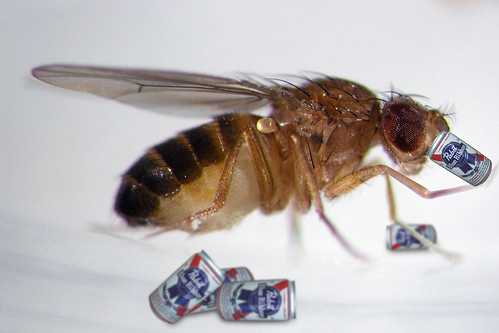
Beer, of course, is an agricultural product, two of its main ingredients are very dependent on a good harvest. Both hops and barley (and other grains such as wheat and rye) grow best when they’re planted in the right place and the conditions are present to encourage their best selves. I received an e-mail a few days ago with the intriguing message. “Bees pollinate 1/3 of our food, including the hops used to make beer. Save the bees, save the beer.”
The e-mail was about an Indiegogo campaign to create a “community open to anyone who cares about bees, the environment and food,” called BeeWithMe, which will consist of “a dynamic new website that teaches people how easy and fun it is to raise a diverse range of gentle bees.” Unless you’ve been cryogenically frozen recently, you no doubt have heard that bees are disappearing from our environment, which could have devastating consequences for our food supply and our life cycle more generally. Find out how to participate at You Can Help Save the Bees, which begins:
Imagine a world without bees. There would be no blueberries, no cherries, no pumpkins – not even beer.
Here’s the problem: Most farmers depend on a single type of bee to pollinate our food and that bee, the honey bee, has been struggling.
You can be part of the solution and protect our food supply by raising gentle, native bees in your backyard or supporting someone else who does.
Keep your favorite foods on the table by contributing today and joining the BeeWithMe network that will collaborate to raise more native bees and grow more food.
Most of the pledge levels involve getting your own bees, some to simply release in your back yard, up to everything you need to raise your own bees. There are also teacher’s packages for classrooms and levels for entire garden clubs and communities. Please bee generous. And remember, save the bees, save the beer.






